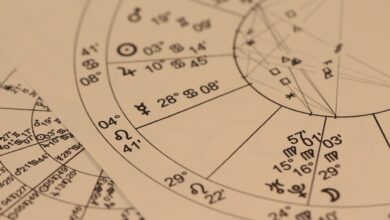
What is the Contribution of Psychology to Education? Psychology is the science of the character and behavior of humans. Human education is concerned with specific changes in the intelligence, personality, and behavior of human beings, and its problems fall broadly into these four subjects: ends, materials, means, and methods. Psychology contributes to a better understanding of the goals of education by defining and clarifying them; limiting them, showing us what can and cannot be done; and proposing new features that become part of it.
Psychology makes more clear ideas about educational goals. When it is said that the object of education is learning, discipline, efficiency, happiness, utility, knowledge, skill, or the perfection of all one’s capacities or development, one’s statements and probable thoughts must be defined. Many people, even the sanest, disagree about precisely what culture is or what is useful. Psychology helps us here by requiring us to translate our conceptions of education’s goals into the exact changes that education should make and by describing the changes that occur in people.
Psychology helps measure the likelihood that a goal is attainable. For example, some education writers argue or suggest that the knowledge, skills, and behavioral habits taught to today’s children serve not only this generation and succeeding generations through the work done by this generation but also succeeding generations. Generations forever through the inheritance of more excellent knowledge, skill, and moral capacity. But unless the mental and moral changes made in one generation are passed on to the next generation by inheritance, the improvement of the race by the direct transmission of the conquests is foolish because of futile aim.
Psychology expands and refines the goal of education. Specific characteristics of human nature may have been considered unimportant or worthless due to ignorance of psychology. Thus, for centuries throughout the history of particular races, even the most gifted thinkers of the race have considered it uneducational to make physical health a critical goal. Physical well-being was even seen as an obstacle to spiritual growth, an unwelcome nuisance to its true master.
Education was to teach her her place, to treat her like a stupid, brutal slave. It is partly because psychology has shown the world that the mind is both servant and co-worker and master of the body, that the well-being of our minds and our morals is closely linked to the well-being being of our body, in particular of our body is the central nervous system that today we all see the importance of physical health as an educational goal.
Psychology makes the main contribution to the understanding of the subject.
Psychology shares with anatomy, physiology, sociology, anthropology, history, and other sciences concerned with changes in the physical or mental nature of man the task of transmitting to thinkers and workers in the field of education knowledge of the material with which they work. Just as the science and art of agriculture depend on chemistry and botany, the art of education depends on physiology and psychology.
A complete science of psychology would reveal all the facts about everyone’s intellect, character, and behavior, reveal the cause of every change in human nature, reveal the result of every educational power – every action of every person, that which changed others or the actor himself – would have done. It would help us to employ people for the good of the world with the same certainty of result that we have now when we use body scraps or chemical elements. As we attain such science, we become masters of our souls and are now masters of heat and light. Progress towards such science is underway.
Psychology contributes to the understanding of educational resources, on the one hand, because the intellect and character of one’s parents, teachers, and friends are significant educational resources, and on the other hand, because Psychology cannot meaningfully study the influence of other means, such as books, maps, or devices apart from the human nature on which they are supposed to act.
Psychology contributes to the knowledge of teaching methods in three ways. First, the methods can be derived directly from the laws of human nature. For example, we can conclude from psychology that the difficulty students have in learning division by a fraction is mainly due to the habit formed by all the thousands of previous divisions they have made or seen, that is- i.e., usually “division – decrease” or “divided number – result less than a number.” We can then design or select a method that minimizes this interference from old habits without weakening the ancient traditions from their proper functioning.
Second, methods drawn from real work experience can be chosen as a starting point, independent of psychology. For example, a class of fifteen students in elementary school is believed to produce better results for a teacher than a class of three or thirty. Therefore, family life is also considered better than institutional life in its effects on character and business. Consequently, it is also believed that when learning a foreign language, it is better to read simple discussions on simple topics than to translate challenging literary masterpieces that deal with subtle and complex issues. Psychology can also help in such cases by explaining why a method works better and thus opening up new perspectives on other questions that experience still needs to clarify.
Third, in all cases, through its methods of measuring knowledge and skill, psychology can propose means of testing and verifying or disproving the claims of any technique. For example, on the part of teachers, it was not possible to decide based on their classroom experience whether it is better to teach the spelling of some homonyms together or separately over time. But all that is needed to determine the question for a given pair is that enough teachers use both methods with sufficiently different grades, keep everything else constant except the technique, and then correct the misspellings of words in the two—measurement cases. Psychology, which teaches us to measure changes in human nature, introduces us to deciding the results of any educational method.
So far, I have outlined the contribution of psychology to education from the point of view of educational problems. I will briefly describe the work done by psychologists, which is particularly important for educational theory and practice and which can be expected from the most significant and frequent contributions.
It will be understood that directly or indirectly, sooner or later, any advance in the sciences of human nature will contribute to our success in mastering human nature and transforming it for the benefit of the common good. If some areas of work of psychologists are mentioned here, it is only because they are the most obvious, most direct, and, as far as can now be seen, the best tools for thinking correctly about parenting.
The first line of work concerns the discovery and improvement of means of measuring intellectual functions. (The study of ways to measure moral functions, such as prudence, willingness to sacrifice an immediate thing for a later good, sympathy, and the like, is only beginning.) Starting with easy cases such as discriminating sensory differences, psychology has made progress in measuring memory and movement precision, fatigue, improvement with practice, ability to perceive small details, quantity, speed, and usefulness of associations, and even in measuring a function as complex as general intelligence and as subtle as suggestibility.
The task of science students to discover the thermometer, galvanometer, and spectroscope and to define volts, caloric energy, and amperes is attempted by psychologists in the field of human nature and behavior. The importance of such work for education should be obvious. At least three-quarters of the problems encountered in parenting are problems whose solution depends on the degree of change of boys and girls.
Of the two methods, which gives the most significant capacity? Is the gain in general ability resulting from “disciplinary” studies so great that it compensates for the loss of beneficial habits? How much more does a boy learn when he spends $30 a year on his education than when he spends just $20? The units for measuring the changes brought about by education are essential for an adequate science of teaching. And while students of education can determine these units with their research, they can use all the experience of psychologists and will need it in their search for comparable units.
The second line of work deals with race, gender, age, and individual differences in all the many elements of intellect, character, and behavior. How do the Igorottes, Ainus, Japanese, and Esquimaux differ in their efficiency in learning to operate particular mechanical inventions? Is the male sex more variable than the female in mental functions? What happens to the understanding of sensory discrimination with age? How do individuals of the same race, sex, and age difference in their efficiency at perceiving small visual details or their accuracy in tuning a particular pitch or speed of movement?
These are examples of many questions psychologists have tried to answer with appropriate measures. Such knowledge of the differences between people for whatever reason is helpful in the thinker of the distinct differences that education is supposed to produce between a man and his old self.
Correlation studies complement these studies on individual differences or variability. How do remarkable liveliness and fidelity in the imagery of one sense correlate with inferiority in other types of imagery? To what extent is the motor ability a symptom of intellectual ability? Forget the fast learner fast? What mental types result from individual variations in cognitive function and their correlations? Psychology has already determined with more or less certainty the answers to several such questions, which are instructive in their connection both with the scientific understanding of human nature and with the practical arrangements for its control.
The extent to which the intellectual and moral differences found in human beings are consequences of their original nature and determined by the lineage from which they come is a question of fundamental importance for education. This is how ancestral influence works. Whether qualities such as leadership, artistic temperament, originality, perseverance, mathematical ability, or motor ability in germs are each represented by one or a few unitary characters so that they are “mentalized” in inheritance, or if they are each represented by the cooperation of so many unitary characters that the laws of their heritage being of “mixture” is a question the answer of which will largely determine the means to be employed for racial betterment. Both the amount and how ancestral influence operates on intellect and character are questions that psychology should and will investigate.
The results and practices of the many forces at work in childhood and throughout life to change the original nature of a human being are subjects of study equally suited to the creation of a psychologist, a sociologist, or a student in education. Still, the latter two will, of course, make use of whatever the former achieves. While the studies of such problems have so far been crude, speculative, and often misguided, it is to be hoped that the influence of climate, food, urban life, the specialization of industry, the different forms of the family and the state, the different “studies” ‘of the schools and the like will be studied by as careful psychologists and with as much care as is now the case with color perception or distance perception.
The foundation on which education builds is the equipping of instincts and abilities given by nature apart from training. Just as the knowledge of an individual’s peculiar hereditary characteristics is necessary for efficient treatment of him, knowledge of the unlearned tendencies of man as a species is necessary for efficient planning of education in general. As a conscious response to this question and partly due to the growing interest in comparative and genetic psychology, psychologists have conducted many studies over the past two decades into the general laws of instinct and their specific nature, dates of appearance and disappearance, and conditions for adaptability. Attitudinal instincts – interest and aversion – must, of course, be included here, as well as tendencies towards seemingly more effective responses.
Unfortunately, confirmed that the unlearned response tendencies of ants and chickens have been studied more carefully than those of humans and that the extreme complexity and intimate admixture with habits in the case of human instincts preclude their study even if done with great care. , fully deliver clear and elegant results. But the educational theorist or practitioner who concludes that his casual observations of children in homes and schools can be backed up by something other than the research of psychologists would be making the same, not so serious, error. , that the pathologist or the doctor. Which should neglect scientific studies of bacteria and protozoa.
Even psychologist who condemns their Studies in toto because they lack the precision and certainty of one’s studies of sensations and perceptual judgments are just as narrow, though for a better reason. The modifications of instincts and abilities into habits and faculties and the development of the latter are the subject of research of dynamic psychology, which replaces the vague verbal and banal maxims of what used to be called “applied psychology” with clear intuitions of distant realities.
Progress from what can only be achieved with common sense. Let’s find out when and why “practice makes perfect” and when and why not; where reinforcing a relationship between situation and response through consequent satisfaction is better than inhibiting alternative relationships through discomfort and where this does not happen; what the law of diminishing returns from equal amounts of exercise is, what it entails, and how it is itself limited; to what extent feelings of success, failure, and fatigue are symptomatic of progress, delay, and disability. Such a list of topics could get much longer even now and is rapidly expanding as more gifted psychologists.
Only twenty years ago, a student could do little more than add to his commonsense deductions from the ordinary facts of life the wily Bain’s orderly series of similar beliefs. Bain used all the psychology of his time and the common knowledge of the class, but today his book is hopelessly outdated. Although it was the source of booklets in the 1980s and 1990s, no one today would think of presenting educational science facts through a revised edition of Bain.
Other lines of psychological work deserve more than a mention. Incidental contributions from studies of sensory and perceptual processes, imagination and memory, attention and distraction, facilitation, inhibition and fatigue, imitation and suggestion, speed and accuracy of movement, and other topics, including from studies done with little or no attention to practical mastery of human nature — summed up in a body of facts that extend and economize that mastery. The particular psychology of infants, children, and adolescents is, of course, necessary for education. False child psychology or wrong child psychology is harmful not because it is child psychology but because it is false.








